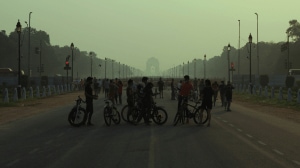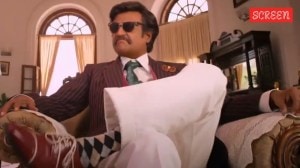Govt cuts petro rate, with it a sorry figure
NEW DELHI, June 2: While consumers across the country rejoiced over the government's decision to restrict the hike in petrol prices to just ...

NEW DELHI, June 2: While consumers across the country rejoiced over the government’s decision to restrict the hike in petrol prices to just one rupee a litre instead of the four announced yesterday, the Bharatiya Janata Party Government’s credibility took a nose-dive in the bargain.
Especially, as it became clear during the day that Finance Minister Yashwant Sinha hadn’t planned on such a large hike anyway. Indeed, till they read the morning papers, senior finance ministry officials thought prices had been hiked by just one rupee a litre!
As hectic parleys took place between the Finance and Petroleum ministries during the day, it became apparent that it was a totally inexcusable lack of communication between the two ministries, apart from poor drafting of the Budget itself, that led to a miserable fiasco. Had the Budget said that the impact of the changes in excise duties on petrol would not affect prices, the oil ministry would then have absorbed the impact. More important, it also appears that thefinance ministry processed the papers relating to the entire petrol price hike based on an incorrect understanding of the petroleum ministry’s views.
To add to its ignominy, pressure from the Opposition also forced the government to backtrack on its Budget proposal, announced just yesterday, to hike urea prices by Rs 1 per kg — it announced a roll-back of 50 paise in this. That means that, just a day after the budget, the government has cut its plan to reduce subsidies by Rs 2,000 crore to half.
In the event, the government came in for severe flak in Parliament. With the Opposition belligerent, Sinha left the house at 12:40 p.m. — that infuriated them further, and at this point Congress MPs staged a walkout. An agitated CPI (M) leader Somnath Chatterjee accused the Government of misleading the House on the prices of petrol and urea. Former minister Jaipal Reddy said: “In my long association with Sinha, I have always known him to be a straightforward person. But I am afraid this time round he hasresorted to dubious means on the twin issues.”
Sinha, in fact, admitted in Parliament that they had been taken completely unawares by the hike. Apparently the Finance Ministry had assumed, based on some discussions with the Petroleum Ministry, that the effect of hiking excise duties on petrol would not be passed on to the consumer — that this hike of around Rs 3 per litre would be absorbed by the Oil Pool Account.
This calculation, however, was based on an incorrect, and incomplete, understanding of the petroleum ministry’s stand. Since the government subsidises kerosene and cooking gas prices by close to Rs 8,000 crore, this money comes from burdening the consumers of petrol.
In the event, the petroleum ministry was of the view that the hike in petroleum prices could be partly absorbed by the Oil Pool Account only if subsidies on cooking gas and kerosene are reduced — this, incidentally, was a commitment made in the Cabinet meeting of November 21 when the phasing out of petroleum controls wasdiscussed. This reduction in subsidies, if it had taken place, would have freed resources which could then be used for absorbing the hike in petrol prices. Since this did not take place, the petroleum ministry didn’t think it fit to absorb part of the hike.
With the government taking a view that the hike had to be restricted to just one rupee — Sinha announced this in Parliament around noon — the impact of the excise duty hike is to be absorbed by the Oil Pool Account now.
As per the new prices, effective from midnight, petrol in Delhi would cost Rs.23.94, while Rs 24.70 in Calcutta, Rs.27.O7 in Mumbai and Rs.28.14 in Chennai, petroleum ministry announced late tonight.
For limiting petrol price hike to one rupee plus applicable local taxes and levies, the basic excise duty was lowered to 32 per cent from 35 per cent announced by finance minister in his Budget yesterday, ministry said in a statement.
Bungling on insurance
As if confusion over petrol price was not enough, the government isnot clear about entry of foreign companies into the insurance sector. The government on Tuesday said it was too early to draw any conclusion that foreign insurance companies could enter the country as joint venture partners with Indian companies. Finance Secretary M S Ahluwalia said the details of the decision are not yet clear.






- 01
- 02
- 03
- 04
- 05

























